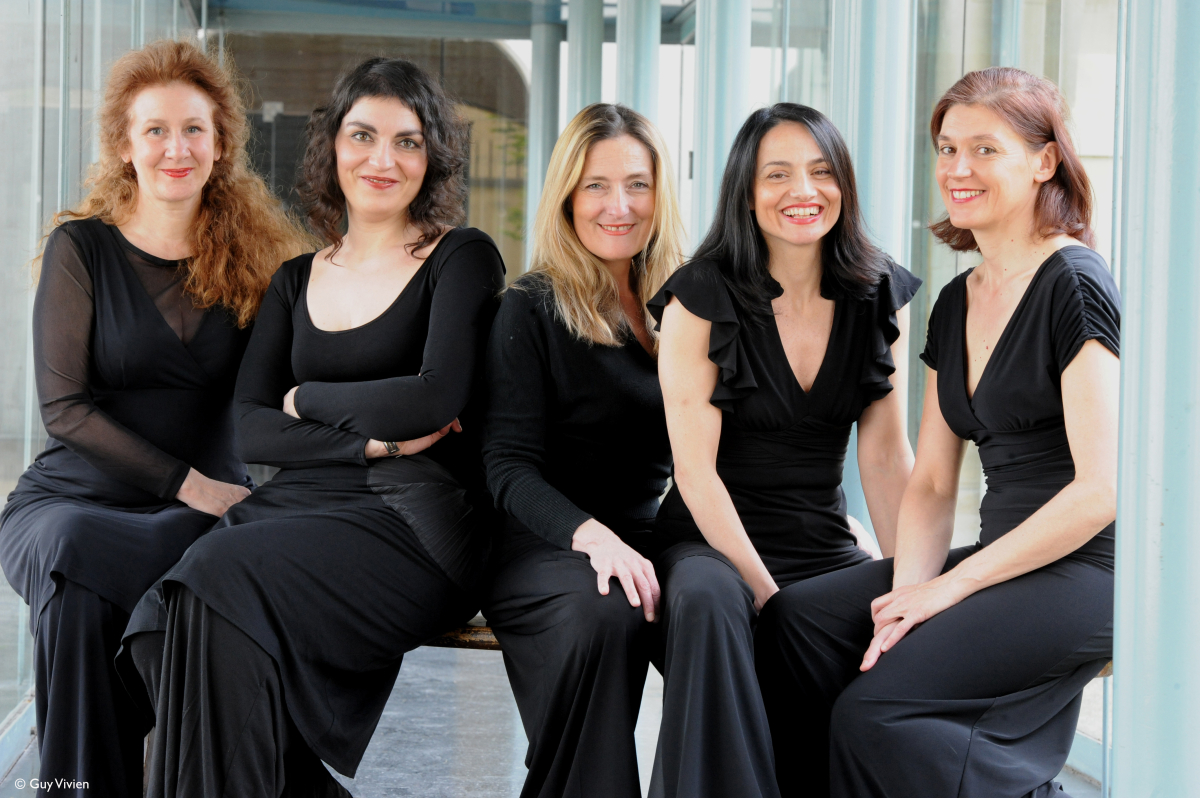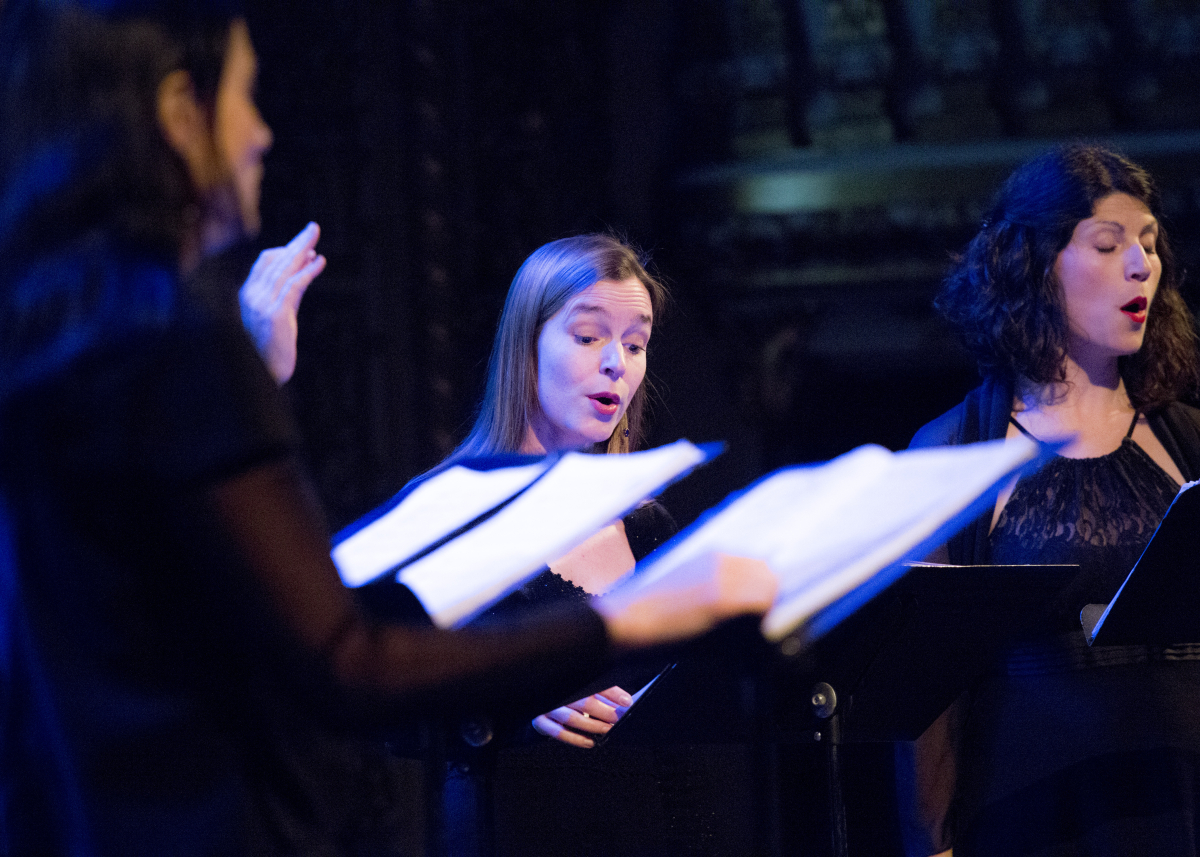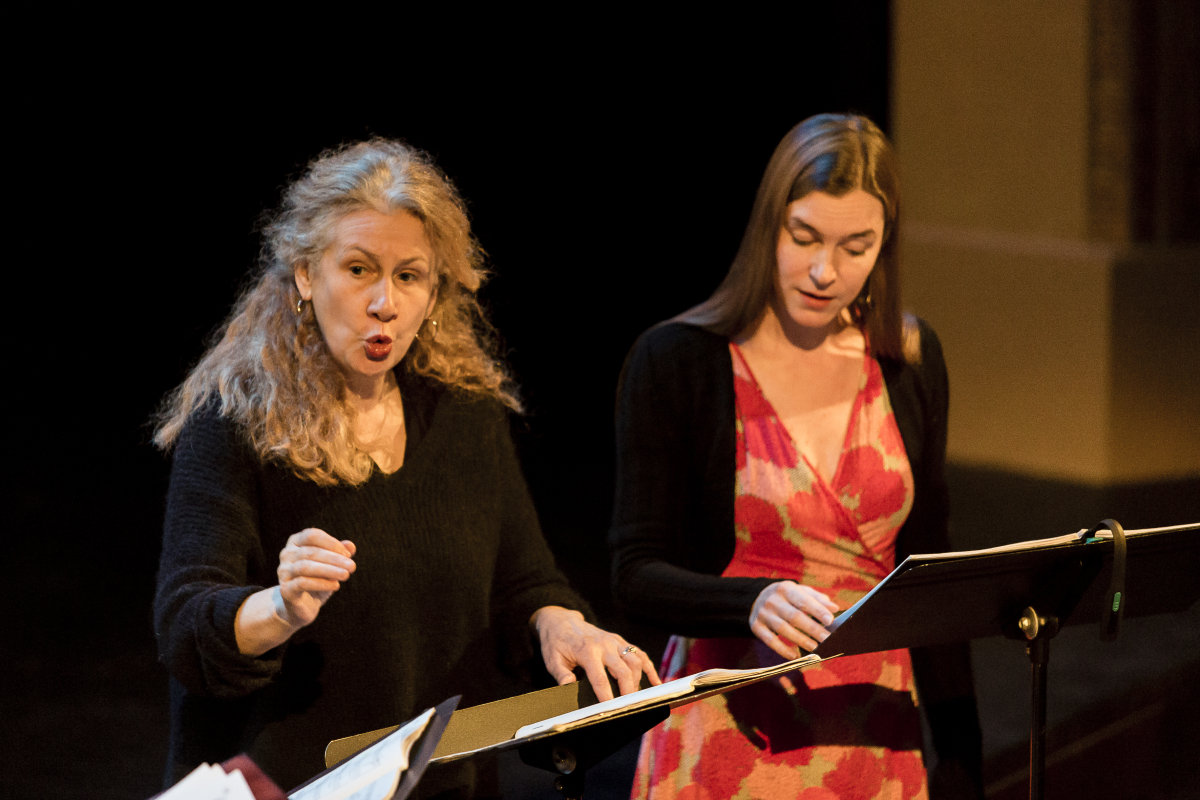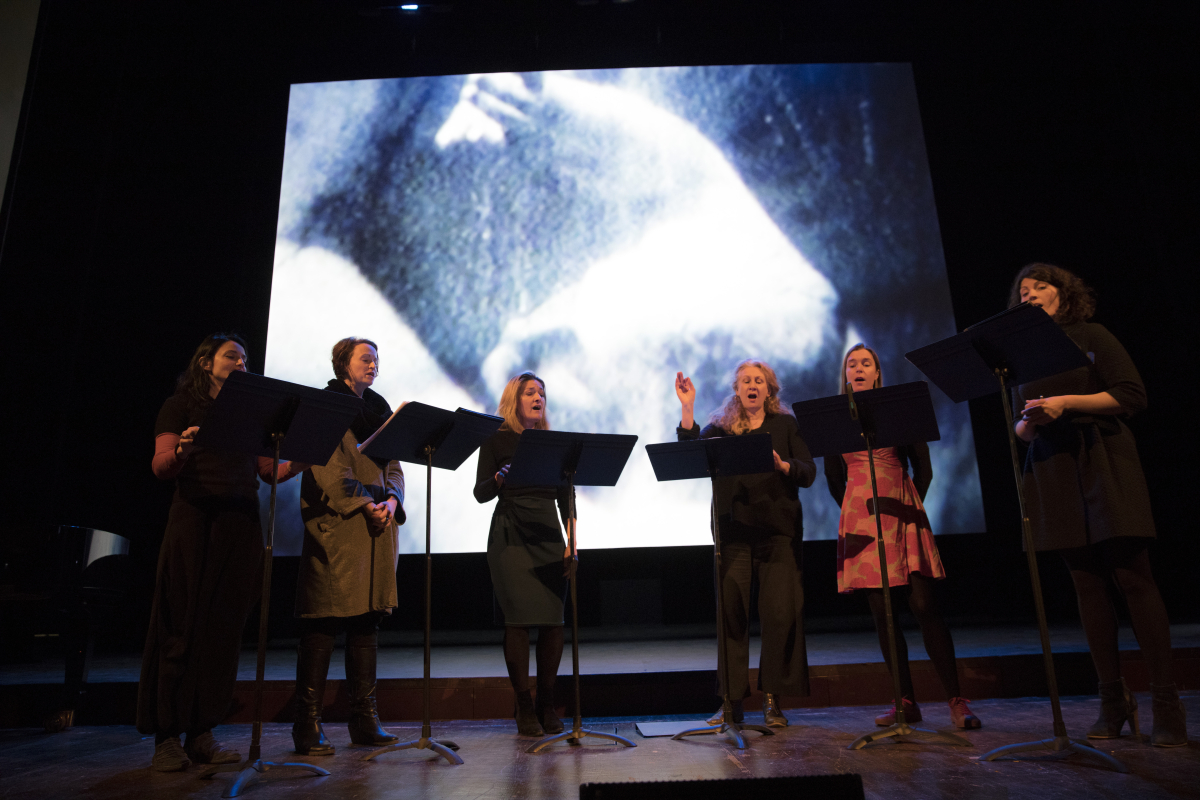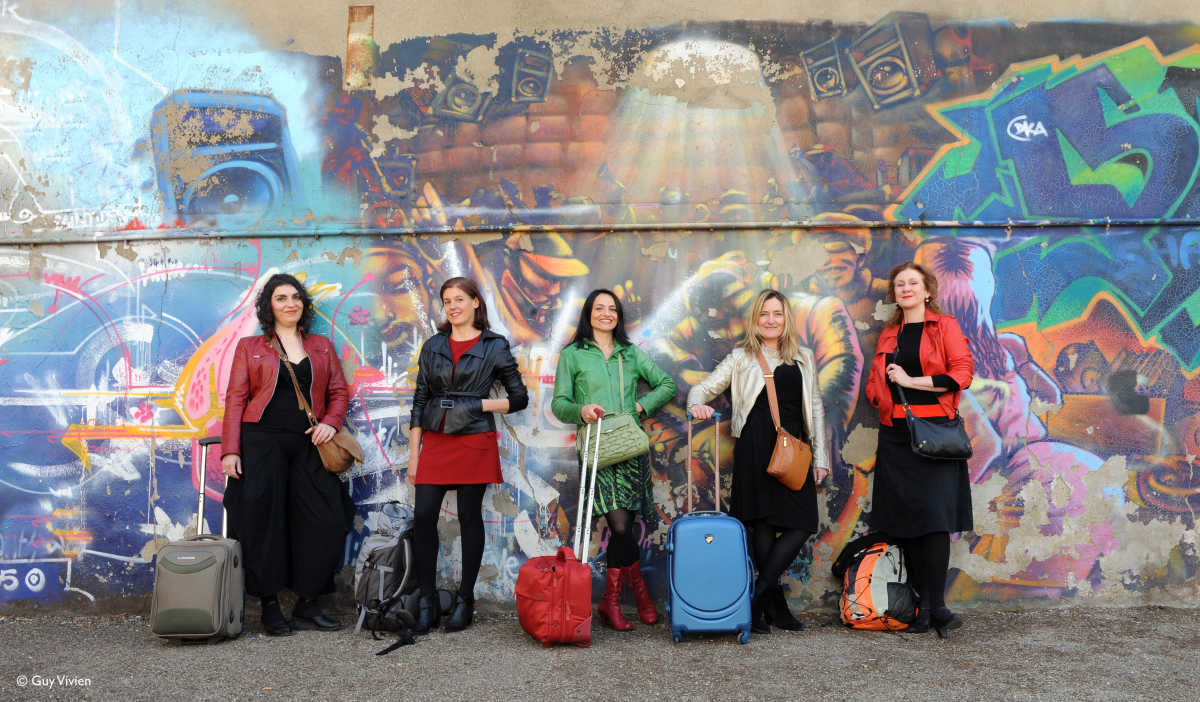Ensemble De Caelis An echo of the Middle Ages
The Ensemble De Caelis, an all-women’s group led by Laurence Brisset Ensemble's website
- 2016 • Liliane Bettencourt Choral Singing Prize

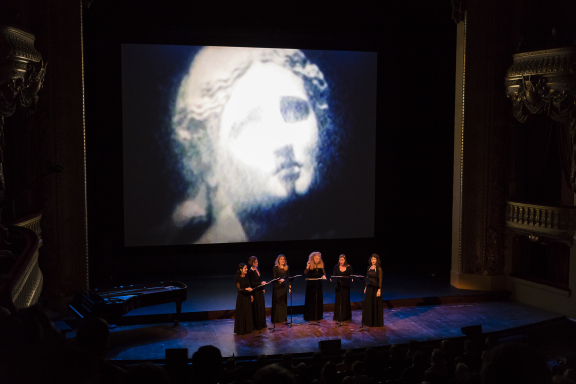

The Ensemble De Caelis, a women’s group specializing in medieval a cappella music, is recognized for the quality of its original, lively performances. Founded by Laurence Brisset in 1998, it aims to promote this little- known music and make it resonate with contemporary creation.
De Caelis has a stable core of five vocalists specializing in early music. The ensemble explores the sacred and secular vocal repertoire from the 11th century to the dawn of the Renaissance.
Its performances are based on research in collaboration with musicologists.
The ensemble experiments with timbre, ornamentation and improvisation. Their artistic complicity gives the ensemble an unusual vocal color.
Putting early and contemporary music in resonance with each other
De Caelis places medieval music in an open, lively and creative process. It also puts its specific skills at the service of today's composers.
The ensemble combines medieval with contemporary sounds, two innovative and creative periods. It reflects and experiments with various artistic associations and concert forms.
De Caelis performs for knowledgeable audiences at major festivals as well as in schools, hospitals and prisons.
Laurence Brisset, a proponent of medieval singing
Laurence Brisset studied harpsichord with William Christie and Noëlle Spieth at the National Regional Conservatory in Lille. Dedicated to vocal music, she won First Prize for song at the National Regional Conservatory in Versailles. At the same time, she studied early musical notation. She was admitted to the CNSM of Paris in the third cycle. In 1998, she founded De Caelis. A tenured professor of vocal technique, she teaches singing and performance of the vocal repertoire.
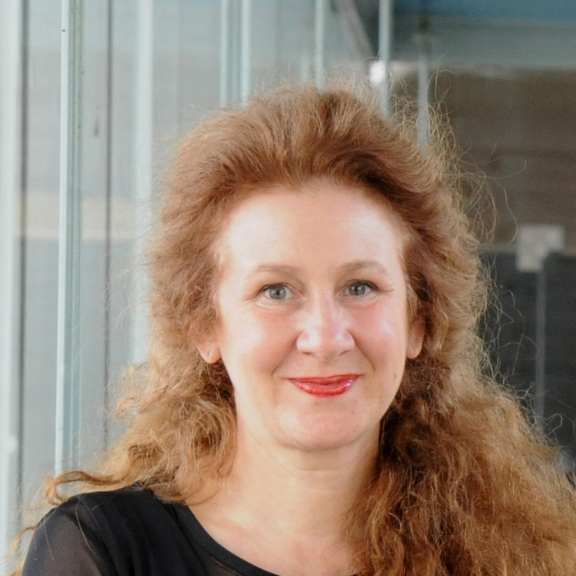
Liliane Bettencourt Prize for choral singing
The creation of the Liliane Bettencourt Prize for choral singing in 1989 is one of the first initiatives of the Fondation Bettencourt Schueller after its creation. It results from a shared desire of the Foundation and the Académie des beaux-arts to encourage French choirs and contribute to the development and influence of this exceptional artistic discipline.
All the award-winners